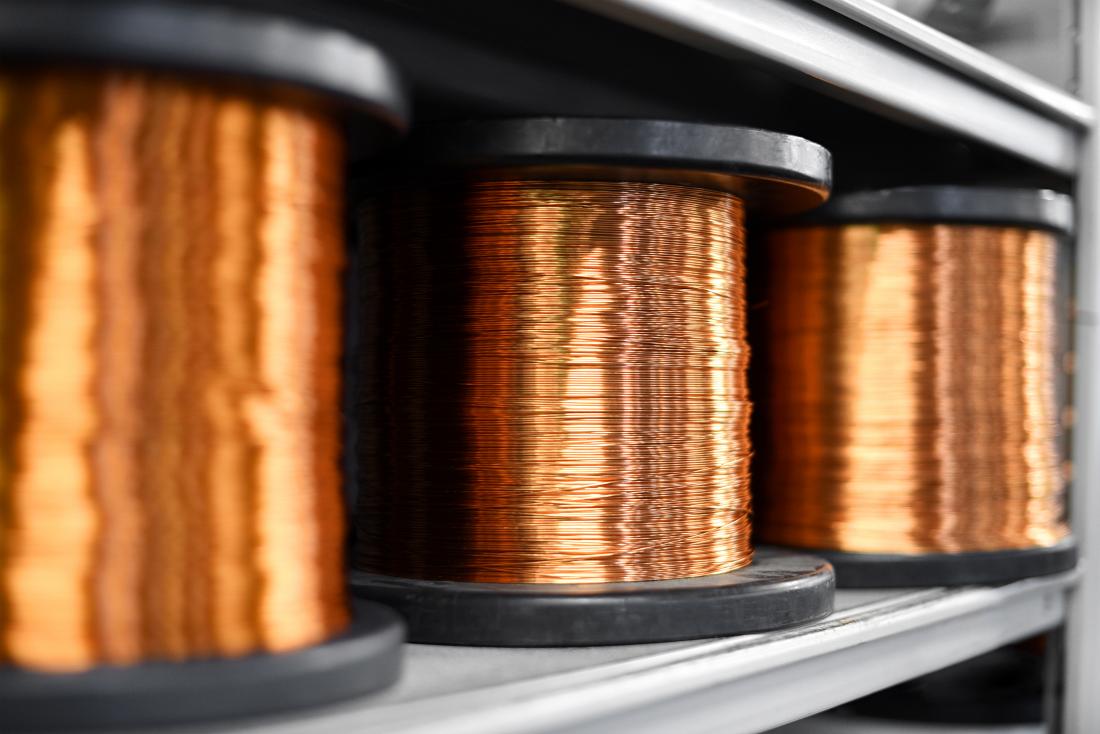Explore the Benefits of Using High-Quality Copper Products for Home and Market
Explore the Benefits of Using High-Quality Copper Products for Home and Market
Blog Article
Just How Copper Products Add To Lasting Practices in Numerous Fields
In sustainable power systems, for example, copper enhances the functionality of solar and wind modern technologies, while its application in building decreases waste via longevity. As markets look for to adopt even more lasting practices, the duty of copper could prove critical in attaining environmental goals.
Copper in Renewable Energy
Copper plays a critical role in the improvement of renewable resource modern technologies, acting as an important conductor in various applications. Its extraordinary electric conductivity and resistance to deterioration make it a suitable product for electrical wiring, which is necessary in solar panels, wind generators, and energy storage systems. In solar photovoltaic or pv systems, copper is made use of in the affiliations and wiring, enabling efficient energy conversion from sunshine to electrical power.
In wind energy, copper is integral to the generators and transformers that convert kinetic power right into electric power, making certain optimum performance and dependability. The demand for electric lorries (EVs) is increasing, with copper being a crucial part in batteries, electric motors, and charging facilities. The change to EVs significantly improves the demand for copper, as these lorries usually make use of four times much more copper than standard interior combustion engine cars.
As the world seeks to reduce environment change and transition to sustainable power resources, copper's duty becomes increasingly essential. The product not only enhances the efficiency and sturdiness of renewable resource systems but additionally sustains the broader objective of reducing greenhouse gas emissions and promoting a lasting future.
Eco-Friendly Building And Construction Materials
In the last few years, there has been a remarkable change towards the fostering of green building materials in feedback to growing environmental issues. This change is encouraged by the need for lasting alternatives that decrease eco-friendly impacts while keeping architectural integrity and visual appeal.
Copper, known for its sturdiness and recyclability, has become a principal in this field. It can be made use of in roof covering, plumbing, and electrical systems, adding to energy effectiveness and lowering waste. Copper's longevity indicates fewer replacements in time, more enhancing its sustainability profile.
Additionally, materials such as bamboo, recovered wood, and reused steel are acquiring popularity. These options not only provide reduced environmental impact yet likewise promote source preservation. As constructing codes increasingly stress sustainability, contractors and architects are incorporating these materials right into their tasks, cultivating innovation in layout.
The enhancing fostering of environmentally friendly construction products shows a wider dedication to sustainability in the built environment. By focusing on these materials, the building market can dramatically minimize its carbon impact, align with regulatory requirements, and support a much healthier ecosystem for future generations. This trend notes a crucial action towards a more lasting future in building and construction.
Copper's Duty in Medical care
Current studies have highlighted the considerable role of copper in health care settings, specifically as a result of its antimicrobial residential or commercial properties. Copper surface areas have actually been revealed to reduce the visibility of pathogens, consisting of microorganisms and infections, by approximately 99.9% within a brief period. This amazing effectiveness makes copper an invaluable product for high-touch surfaces in healthcare facilities, such as doorknobs, bed rails, and IV posts, consequently adding to Learn More boosted infection control measures.
Along with its straight antimicrobial impacts, copper additionally contributes in the wider context of health center sustainability (Copper Products). By including copper see page into clinical equipment and furnishings, medical care facilities can reduce the occurrence of healthcare-associated infections (HAIs), which not only enhances client end results but likewise reduces the expenses connected with extended healthcare facility remains and additional therapies
Moreover, copper's resilience and recyclability line up with lasting practices, enabling liable source administration. As medical care systems increasingly prioritize both individual security and environmental stewardship, the integration of copper products is becoming more widespread. This dual advantage emphasizes copper's important payment to a healthier, safer, and more sustainable medical care atmosphere.
Sustainability in Transport

Additionally, copper's sturdiness and rust resistance add to the longevity of transportation facilities (Copper Products). In rail systems, for circumstances, copper components enhance the integrity and performance of signaling and power systems, crucial for lowering hold-ups and power consumption. Furthermore, copper's function in sustainable energy systems, such as solar and wind, supports lasting transportation remedies home by supplying clean energy for electrical transit alternatives
Investments in copper modern technology not only foster sustainability however additionally stimulate financial growth and job creation in green fields. As industries aim to fulfill rigorous environmental policies, the application of copper products in transport emerges as a pivotal approach in attaining sustainability objectives and advertising a cleaner, much more reliable future.
Copper and Circular Economic Situation
As the world progressively welcomes sustainability, the function of copper in the circular economy comes to be ever before a lot more significant. Copper's intrinsic homes-- such as its recyclability, conductivity, and toughness-- setting it as a crucial product in a resource-efficient economy. The circular economic climate intends to lessen waste and make the most of resource usage with recycling and reusing products, and copper master this respect.
The metal can be recycled forever without loss of quality, making it a suitable candidate for sustainable methods throughout different fields, consisting of building, electronics, and eco-friendly energy. By recovering and recycling copper from end-of-life items, sectors can dramatically minimize the requirement for virgin materials, consequently decreasing environmental influences related to mining and handling.
Additionally, the assimilation of copper right into circular economic climate frameworks not only conserves sources yet also fosters technology. Businesses that prioritize copper recycling contribute to an extra lasting supply chain, improving their competitiveness while straightening with governing demands and consumer choices for ecologically responsible items.
Final Thought
To conclude, copper products significantly contribute to sustainable methods across multiple fields. Their vital duty in boosting renewable resource technologies, advertising environmentally friendly building products, supporting infection control in healthcare, assisting in lasting transportation, and symbolizing the principles of a circular economic situation highlights the convenience and importance of copper. By integrating copper into different applications, markets can accomplish higher performance, lower ecological influence, and align with international sustainability objectives, inevitably promoting a much more sustainable future.

Copper's outstanding conductivity makes it a preferred product in electrical vehicle (EV) systems, enhancing energy performance and performance. In addition, copper's function in eco-friendly energy systems, such as solar and wind, sustains sustainable transport services by supplying clean energy for electrical transit alternatives.
Their essential function in boosting sustainable energy modern technologies, advertising environment-friendly construction products, supporting infection control in health care, facilitating sustainable transportation, and embodying the concepts of a round economy underscores the versatility and significance of copper.
Report this page